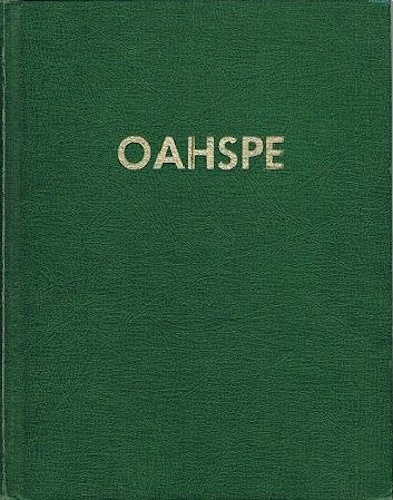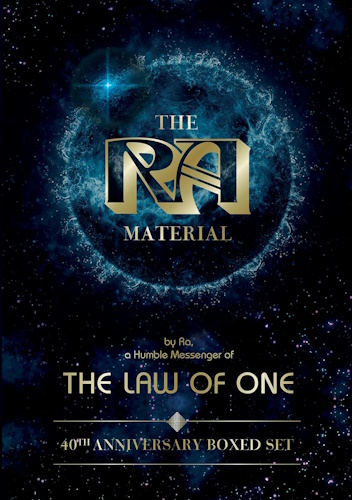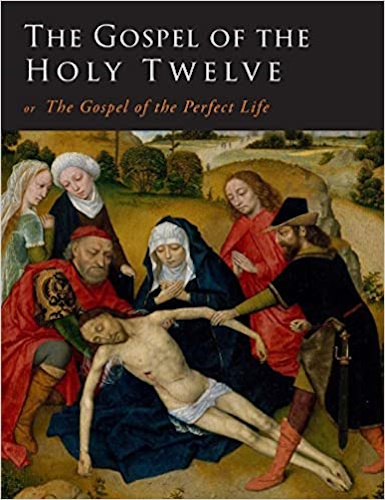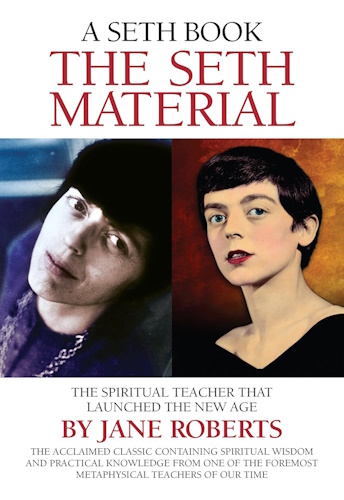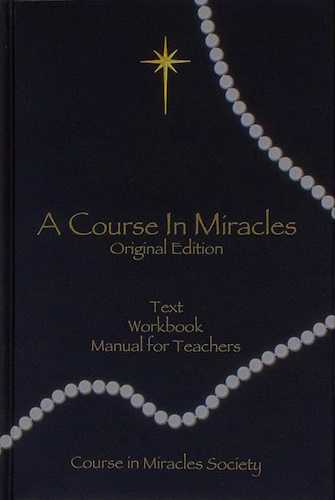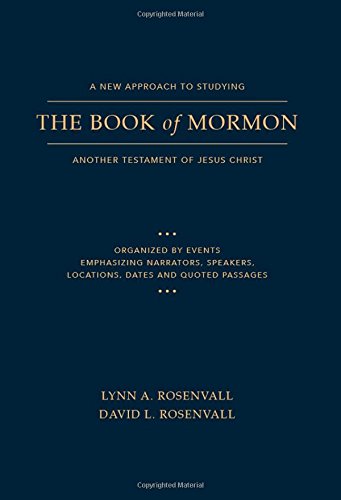
![]()
![]()
First Book of God
Chapter XX
1. ON the next morning, at sunrise, Ormazd spake again through Brahma, and Vede wrote down the words; and on the succeeding morning, in like manner; and so continued for forty days; and in forty days, behold, the Veda was completed; the holy words of Brahma were written.
2. God said to Brahma: Go now, and preach my gospel unto whosoever will hear; proclaiming liberty to all who will follow thee. I will be with thee to the end. And thou shalt take Yu-tiv, thy wife, and all thy sons with thee, even Hog, the youngest born.
3. So Brahma went forth preaching by day, and exhibiting the spirits of the dead by night. But to the chosen he spake at dawn, in the early morning, the time the All Light was upon him. And his sons also preached and explained; and Yu-tiv explained to all women how it was with her when pregnant with her sons. Only Hog preached not; neither opened he his mouth before the populace as to his unbelief. In his soul he said: These things may be true, and if they be true, it is well. If they be not true, still the believing of them, by the populace, worketh righteousness and goodness. With all my philosophy, I cannot move the multitude to righteousness. But my father maketh them as a flock of sheep; they cease from evil, and they practice good fellowship. Therefore, I will stand by my father to the end.
4. When Brahma came near a city, he halted outside the walls, that according to law the kings could not stay his voice. And the multitude came out of the city to hear him, and many returned not; but remained with Brahma and his sons in their camp. And when Brahma moved to another city they went with him. And in a little while the hosts of Brahma were as an army of thousands.
5. And not a few of them were men and women of wealth, and they cast their treasures at Brahma's feet, saying: Take thou this trash, and give me of everlasting life instead. But men of learning came not to Brahma; neither came the priests, nor kings, nor magicians, nor consultors of oracles.
6. God said: Take thy hosts and establish them in families of tens, and of twenties, and of hundreds, and of thousands, and give thou a head father unto each and every family. And thy people shall be a people unto themselves, having nothing in common with the kings' peoples.
p. 358
7. Behold, my angel will go with thee, and show the waste lands, such as the kings' peoples desire not; and thou and thy people shall possess the lands and dwell together in love and wisdom, doing good to one another.
8. So Brahma did as commanded, and he established the mountains of Roam, and the valleys in the mountains of Roam, and his people dwelt there, in all six thousand eight hundred and twenty, men, women and children.
9. And there came to Brahma a certain captain-general of the army of King Syaythaha, of the West Kingdom of Vind'yu, wherein lay the city of Gowsehamgamrammus, of a million inhabitants, and he said unto Brahma:
10. In the name of the king, mightiest of men, Syaythaha, am I before thee, O Brahma. Behold, the king sendeth thee gold, silver and copper, saying: Brahma is good! Brahma shall give me the blessing of heaven!
11. Brahma answered the captain-general, saying: Brahma saluteth the king, mightiest of men, Syaythaha, in the name of Ormazd, the Creator, in love and in these wise words, that come to the soul of Brahma. Brahma sendeth the king's servant, even the captain-general, back to the king, with his gold, silver and copper, saying: Deal thou with thy Creator and not with men! The Great Spirit holdeth all blessings in His own hands. Give him thy treasures!
12. The captain-general departed and returned with his gold, silver and copper to the king, and told the king Brahma's words. The king was pleased with the wisdom of Brahma, but withal felt rebuked and sore at heart. So Ormazd suffered satan to possess the king for a season; and the king resolved to destroy Brahma and all his people. And he commanded the captain-general to assemble together fifty thousand men, with arms, ready for battle. And when they were thus prepared, and started on their journey, which would require seven days, the king bethought him to inquire of the oracle as to his best mode of success.
13. Now the angel of God had taken possession of the oracle, and yet the magi knew it not, nor did Syaythaha. So the king came before the sand table, and the spirit wrote these words: He who hath become one with Ormazd is mightier than an army. Take off thy crown, O king, mightiest of men, and thy golden robes, and all that is fine and fair to look upon, and clothe thyself in the poorest of garments, even as a druk that wandereth about. But thy crown and thy costly robes, and thy raiment, fine and fair to look upon, put upon thy body servant. And ye twain shall go in advance of the army, even before Brahma.
14. And thou shalt witness that man who professeth to labor for the poor will fall on his belly before the man of riches and power. And behold, O king, thou shalt feel justified in destroying him that falleth before the crown and robes, knowing he is a hypocrite.
15. The king was pleased with this, and he fulfilled all that was commanded of the oracle; and when he came near Brahma's camp, a man came before the king's servant, saying: Behold, O king, command me as thou wilt! And he prostrated himself on the ground before the king's servant. Whereupon the king, dressed as a druk, came to him and said: Who art thou? And the man answered: Begone, beggar! My matter is with the king! (For he mistook which was which.)
16. The king ordered the man to be seized and taken away and put to death; and the advance guard fell upon the man and slew him with war clubs. And when the man was quite dead, behold, Brahma came, and the king, nor none of his advance guard, knew him. And Vus and Whe-ish were with their father, and the three came and stood by the dead man. Brahma then took the king's hand, saying: Thou that art in the garb of a druk come hither, for thou hast flesh and blood unto holiness. Lay thou one hand on on the dead man; put thine other hand on my head, for I will prove Ormazd before thine eyes. Behold, thou who hast tried to kill Brahma, killed another person!
17. And when the king's hands were placed, Brahma stood by the head of the dead man, and his two sons by the heart; and Brahma said: In Thy name, O Ormazd, and by Thy power in me, return thou to life, O man! And arise! Arise! Arise!
18. And behold, the man was brought to life, and rose up and stood before the multitude.
19. The king trembled with fear, and the guard stood aback, amazed. And, as for the servant arrayed in the king's garb, he cast aside the crown and robes, and fled into the forest.
20. Brahma said unto the king: Here standeth the angel of Ormazd, and the angel saith thou art the king in disguise, and, moreover, that he, the angel, commandeth thee here for this purpose, saying to thee in the
p. 359
oracle: He that hath become one with Ormazd is mightier than an army!
21. The king said: This is true. I swear before Thee, O Ormazd, henceforth I will wear such garments as these I have on, and my life shall be given to Thy service. Let who will, take my kingdom and all I called mine.
22. So Syaythaha joined Brahma's hosts; and with Syaythaha came his brothers and their sons and daughters. And, those that came, cast into a heap, whatsoever goods or moneys they had, and the head fathers of the families divided and distributed the same according to their best wisdom. And Brahma's people, by commandment of Brahma, called themselves not Brahmins, but Vedans; that is, Truth-followers.
23. In those days the language of the kings of Vind'yu, and of men of learning, was All-ao, signifying, OUT OF ALL THAT IS GOOD. But the Vedans were the unlearned, and their language was imperfect, and of many meanings for every spoken and written word.
24. And God foresaw the liability to corruption of the Brahmin religion, and he spake to Brahma, saying: Behold, I have given thee seven sons, six of light and one of darkness. Thy six sons of light shall establish each one a school amongst my chosen, and teach my scriptures by word of mouth. And all that henceforth become rab'bahs shall be capable of repeating every word of the Veda by heart. And, in after ages, if the plates and the books of my holy religion are destroyed by war, it mattereth not. The substance of thy labors shall live.
25. Then did Brahma's sons as commanded, each and every one becoming a teacher. And again God spake to Brahma, saying: Arise, and go where my angel will lead thee, taking thy wife and thy son, Hog, with thee. And thou shalt travel yet two years from place to place, and then return thither, for thy labor will be completed.
-
Urantia Book, 44:0.11 - The Celestial Artisans
Never in your long ascendancy will you lose the power to recognize your associates of former existences. Always, as you ascend inward in the scale of life, will you retain the ability to recognize and fraternize with the fellow beings of your previous and lower levels of experience. Each new translation or resurrection will add one more group of spirit beings to your vision range without in the least depriving you of the ability to recognize your friends and fellows of former estates.
-
Princess Bride 1987 Wallace Shawn (Vizzini) and Mandy Patinkin (Inigo Montoya)
Vizzini: HE DIDN'T FALL? INCONCEIVABLE.
Inigo Montoya: You keep using that word. I do not think it means what you think it means. -
Urantia Book, 117:4.14 - The Finite God
And here is mystery: The more closely man approaches God through love, the greater the reality -- actuality -- of that man. The more man withdraws from God, the more nearly he approaches nonreality -- cessation of existence. When man consecrates his will to the doing of the Father's will, when man gives God all that he has, then does God make that man more than he is.
-
Urantia Book, 167:7.4 - The Talk About Angels
"And do you not remember that I said to you once before that, if you had your spiritual eyes anointed, you would then see the heavens opened and behold the angels of God ascending and descending? It is by the ministry of the angels that one world may be kept in touch with other worlds, for have I not repeatedly told you that I have other sheep not of this fold?"
-
Urantia Book, Foreword - 0:12.12 - The Trinities
But we know that there dwells within the human mind a fragment of God, and that there sojourns with the human soul the Spirit of Truth; and we further know that these spirit forces conspire to enable material man to grasp the reality of spiritual values and to comprehend the philosophy of universe meanings. But even more certainly we know that these spirits of the Divine Presence are able to assist man in the spiritual appropriation of all truth contributory to the enhancement of the ever-progressing reality of personal religious experience—God-consciousness.
-
Urantia Book, 1:4.3 - The Mystery Of God
When you are through down here, when your course has been run in temporary form on earth, when your trial trip in the flesh is finished, when the dust that composes the mortal tabernacle "returns to the earth whence it came"; then, it is revealed, the indwelling "Spirit shall return to God who gave it." There sojourns within each moral being of this planet a fragment of God, a part and parcel of divinity. It is not yet yours by right of possession, but it is designedly intended to be one with you if you survive the mortal existence.
-
Urantia Book, 1:4.1 - The Mystery Of God
And the greatest of all the unfathomable mysteries of God is the phenomenon of the divine indwelling of mortal minds. The manner in which the Universal Father sojourns with the creatures of time is the most profound of all universe mysteries; the divine presence in the mind of man is the mystery of mysteries.
-
Urantia Book, 1:4.6 - The Mystery Of God
To every spirit being and to every mortal creature in every sphere and on every world of the universe of universes, the Universal Father reveals all of his gracious and divine self that can be discerned or comprehended by such spirit beings and by such mortal creatures. God is no respecter of persons, either spiritual or material. The divine presence which any child of the universe enjoys at any given moment is limited only by the capacity of such a creature to receive and to discern the spirit actualities of the supermaterial world.
-
Urantia Book, 11:0.1 - The Eternal Isle Of Paradise
Paradise is the eternal center of the universe of universes and the abiding place of the Universal Father, the Eternal Son, the Infinite Spirit, and their divine co-ordinates and associates. This central Isle is the most gigantic organized body of cosmic reality in all the master universe. Paradise is a material sphere as well as a spiritual abode. All of the intelligent creation of the Universal Father is domiciled on material abodes; hence must the absolute controlling center also be material, literal. And again it should be reiterated that spirit things and spiritual beings are real.
-
Urantia Book, 50:6.4 - Planetary Culture
Culture presupposes quality of mind; culture cannot be enhanced unless mind is elevated. Superior intellect will seek a noble culture and find some way to attain such a goal. Inferior minds will spurn the highest culture even when presented to them ready-made.
-
Urantia Book, 54:1.6 - True And False Liberty
True liberty is the associate of genuine self-respect; false liberty is the consort of self-admiration. True liberty is the fruit of self-control; false liberty, the assumption of self-assertion. Self-control leads to altruistic service; self-admiration tends towards the exploitation of others for the selfish aggrandizement of such a mistaken individual as is willing to sacrifice righteous attainment for the sake of possessing unjust power over his fellow beings.
-
Urantia Book, 54:1.9 - True And False Liberty
How dare the self-willed creature encroach upon the rights of his fellows in the name of personal liberty when the Supreme Rulers of the universe stand back in merciful respect for these prerogatives of will and potentials of personality! No being, in the exercise of his supposed personal liberty, has a right to deprive any other being of those privileges of existence conferred by the Creators and duly respected by all their loyal associates, subordinates, and subjects.
-
Urantia Book, 54:1.8 - True And False Liberty
There is no error greater than that species of self-deception which leads intelligent beings to crave the exercise of power over other beings for the purpose of depriving these persons of their natural liberties. The golden rule of human fairness cries out against all such fraud, unfairness, selfishness, and unrighteousness.
